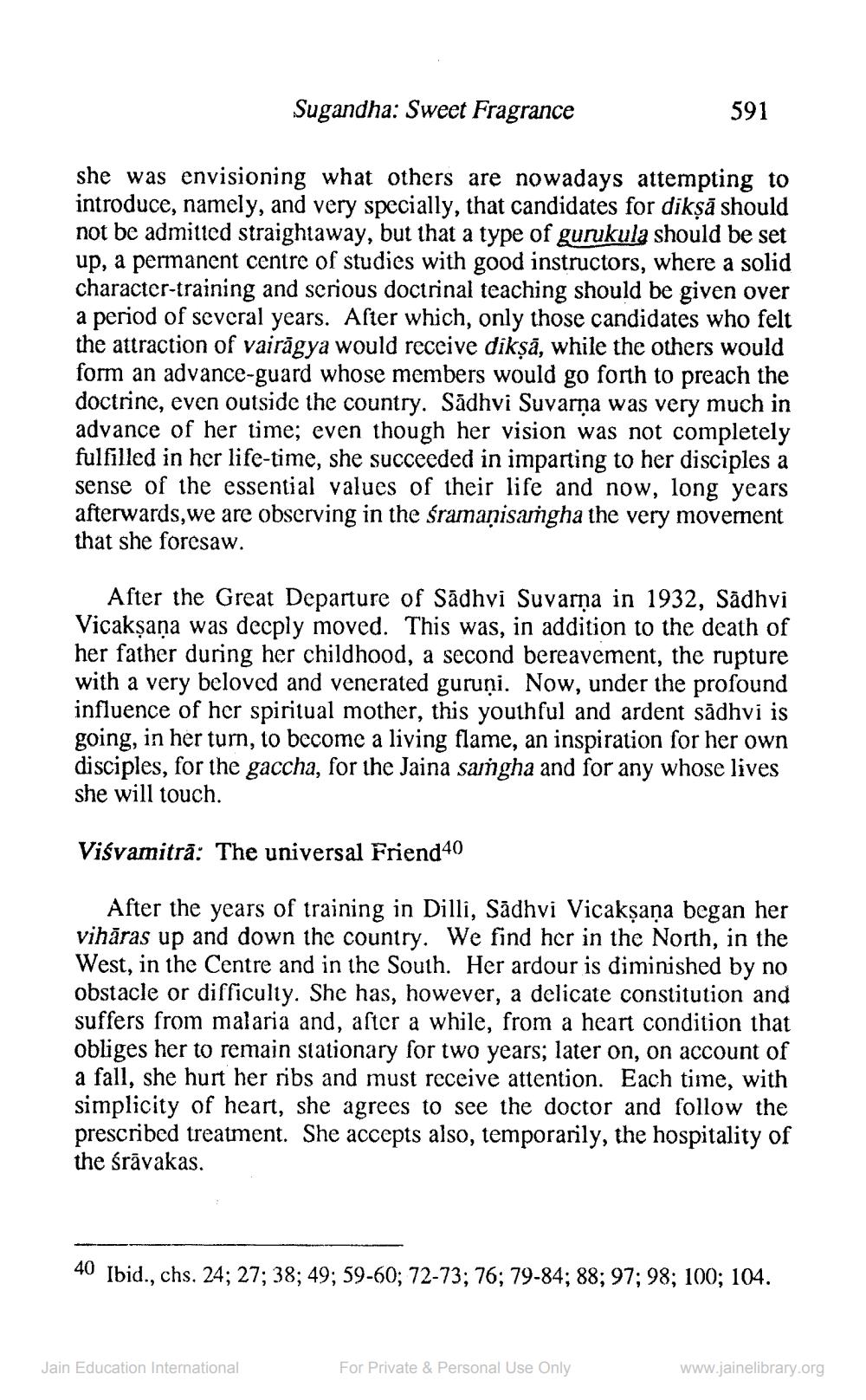________________
Sugandha: Sweet Fragrance
591
she was envisioning what others are nowadays attempting to introduce, namely, and very specially, that candidates for dikşā should not be admitted straightaway, but that a type of gurukula should be set up, a permanent centre of studies with good instructors, where a solid character-training and serious doctrinal teaching should be given over a period of several years. After which, only those candidates who felt the attraction of vairāgya would receive dikṣā, while the others would form an advance-guard whose members would go forth to preach the doctrine, even outside the country. Sadhvi Suvarna was very much in advance of her time; even though her vision was not completely fulfilled in her life-time, she succeeded in imparting to her disciples a sense of the essential values of their life and now, long years afterwards, we are observing in the śramaņisaṁgha the very movement that she foresaw.
After the Great Departure of Sádhvi Suvarna in 1932, Sadhvi Vicakṣaṇa was decply moved. This was, in addition to the death of her father during her childhood, a second bereavement, the rupture with a very beloved and venerated guruņi. Now, under the profound influence of her spiritual mother, this youthful and ardent sādhvi is going, in her turn, to become a living flame, an inspiration for her own disciples, for the gaccha, for the Jaina samgha and for any whose lives she will touch.
Viśvamitrā: The universal Friend40
After the years of training in Dilli, Sadhvi Vicaksana began her vihāras up and down the country. We find her in the North, in the West, in the Centre and in the South. Her ardour is diminished by no obstacle or difficulty. She has, however, a delicate constitution and suffers from malaria and, after a while, from a heart condition that obliges her to remain stationary for two years; later on, on account of a fall, she hurt her ribs and must receive attention. Each time, with simplicity of heart, she agrees to see the doctor and follow the prescribed treatment. She accepts also, temporarily, the hospitality of the śrāvakas.
40 Ibid., chs. 24; 27; 38; 49; 59-60; 72-73; 76; 79-84; 88; 97; 98; 100; 104.
Jain Education International
For Private & Personal Use Only
www.jainelibrary.org




